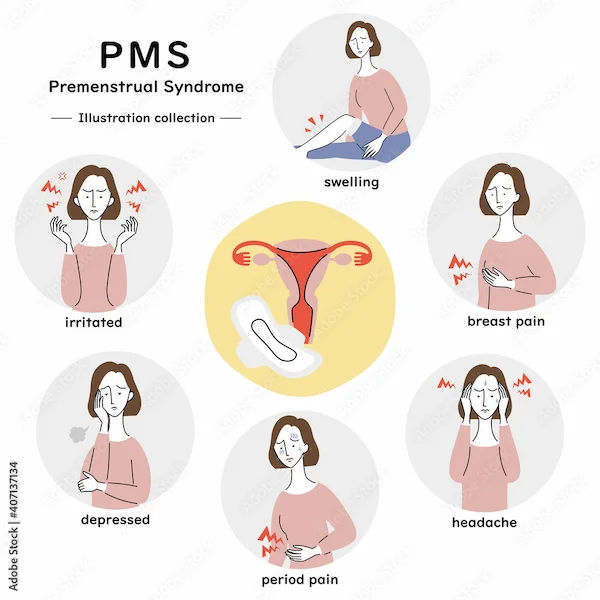Basal Body Temperature Tracking: A Guide to Fertility and Health
Discover how tracking your Basal Body Temperature (BBT) can help you pinpoint ovulation, identify your fertile window, and boost your chances of conception. Learn the science and tools for effective BBT tracking.

Written by Dr.Sonia Bhatt
Last updated on 13th Jan, 2026

Introduction
Have you ever wondered how your body quietly communicates its inner workings? One of the most fascinating ways is through your basal body temperature (BBT). BBT is your body’s temperature at complete rest, and it can reveal a lot about your menstrual cycle, fertility, and overall health. Whether you’re trying to conceive, avoid pregnancy, or simply understand your body better, tracking your BBT can be an empowering tool. In this blog, we’ll explore what BBT is, how to track it, and how it can help you take control of your reproductive and general health.
The Science Behind BBT
Your body’s temperature isn’t constant—it fluctuates slightly throughout your menstrual cycle due to hormonal changes. Two key hormones, oestrogen and progesterone, play a significant role in these shifts. During the first half of your cycle (the follicular phase), oestrogen dominates, and your BBT tends to be lower. After ovulation, progesterone takes over, causing your BBT to rise slightly and stay elevated until your next period begins. This temperature shift is a clear sign that ovulation has occurred.
Understanding this pattern can help you identify when you’re most fertile, detect potential health issues, or gain insight into your body’s natural rhythms.
Benefits of Tracking BBT
Tracking your BBT offers numerous benefits, whether planning a pregnancy, avoiding one, or just keeping an eye on your health. Here’s how it can help:
Fertility Planning: By pinpointing ovulation, you can identify your most fertile days and increase your chances of conception.
Natural Contraception: If you’re not ready for a baby, BBT tracking can help you avoid unprotected sex during your fertile window.
Cycle Monitoring: Regular BBT tracking can reveal irregularities in your menstrual cycle, such as anovulation (when ovulation doesn’t occur) or a short luteal phase (the time between ovulation and your period).
Health Insights: BBT patterns can highlight hormonal imbalances, such as low progesterone or thyroid issues, prompting you to seek medical advice.
Tools Needed for BBT Tracking
To get started with BBT tracking, you’ll need a few simple tools:
A BBT Thermometer: Unlike regular thermometers, BBT thermometers measure temperature to two decimal places, providing the precision to detect subtle changes. You can choose between digital or analogue options.
A Tracking Method: Record your daily temperatures using a dedicated BBT chart, a notebook, or a smartphone app. Apps like Fertility Friend, Clue, or Natural Cycles can make tracking and interpreting your data easier.
Optional Tools: Consider using ovulation predictor kits (OPKs) or monitoring cervical mucus alongside BBT for added accuracy.
How to Measure BBT Accurately?
Accuracy is key when tracking BBT. Here’s how to do it right:
Measure at the Same Time Daily: Take your temperature as soon as you wake up, before getting out of bed or even sitting up. Consistency in timing is crucial.
Use the Same Method: Always take your temperature orally, vaginally, or rectally—whichever method you choose, stick to it.
Minimise Disruptions: Avoid talking, drinking water, or moving around before taking your temperature.
Account for Variables: Illness, lack of sleep, alcohol consumption, and stress can affect your BBT. Make a note of these factors in your chart.
Charting Your BBT
Creating a BBT chart is simple and incredibly insightful. Here’s how to do it:
Plot Your Temperatures: Record your daily temperature on a graph or in an app. Over time, a pattern will emerge.
Identify Phases: Your temperatures will be lower during the follicular phase. After ovulation, they’ll rise by about 0.3 to 0.5 degrees Celsius and stay elevated during the luteal phase.
Look for Patterns: A sustained temperature shift indicates ovulation. If your temperatures remain consistently low, you may not have ovulated.
Charting your BBT can feel like detective work, but it’s a rewarding way to understand your body.
Using BBT for Fertility Planning
If you’re trying to conceive, BBT tracking can be a game-changer. Here’s how to use it effectively:
Pinpoint Ovulation: The rise in BBT confirms that ovulation has occurred. By tracking over several cycles, you can predict when you’re likely to ovulate in the future.
Identify Your Fertile Window: Sperm can survive for up to five days, so having intercourse in the days leading up to ovulation increases your chances of conception.
Combine with Other Signs: For even greater accuracy, pair BBT tracking with observations of cervical mucus (which becomes clear and stretchy around ovulation).
Using BBT for Natural Contraception
If you’re not ready for pregnancy, BBT tracking can be part of a natural contraception method called the Fertility Awareness Method (FAM). Here’s how it works:
Avoid Unprotected Sex During Your Fertile Window: Once your BBT rises and confirms ovulation, you’re no longer fertile for that cycle. However, you’ll need to avoid unprotected sex from the start of your cycle until a few days after the temperature rises to be safe.
Understand the Limitations: FAM requires strict adherence and may not suit everyone, especially if you have irregular cycles. Combining it with other methods, like barrier contraception, can improve effectiveness.
Detecting Health Issues through BBT
Your BBT chart can reveal more than just ovulation—it can also highlight potential health issues:
Low Progesterone: If your luteal phase is shorter than 10 days or your temperatures are inconsistent, it could indicate low progesterone levels.
Anovulation: Consistently low temperatures without an apparent rise may mean you’re not ovulating, which could be linked to conditions like polycystic ovary syndrome (PCOS).
Thyroid Issues: Abnormally high or low baseline temperatures may suggest thyroid dysfunction.
If you notice unusual patterns, consult a healthcare provider for further evaluation.
Common Challenges and Tips for Success
Tracking BBT isn’t always straightforward, but these tips can help you stay on track:
Irregular Sleep Schedules: If you work shifts or have inconsistent sleep patterns, try to take your temperature after your longest stretch of sleep.
Stress and Illness: These can affect your BBT, so note any unusual circumstances in your chart.
Stay Consistent: Clear patterns can take a few cycles to emerge, so be patient and stick with it.
Integrating BBT Tracking with Modern Technology
Technology has made BBT tracking more straightforward than ever. Here’s how modern tools can help:
Wearable Devices: Some smart thermometers and wearables, like the Tempdrop or Apple Watch, can track your BBT automatically.
Apps: Fertility tracking apps can analyse your data, predict ovulation, and even remind you to take your temperature.
Privacy Considerations: Be mindful of the data you share online and choose apps with strong privacy policies.
Conclusion
Tracking your basal body temperature is more than just a fertility tool—it’s a way to connect with your body and take charge of your health. Whether you’re planning a family, avoiding pregnancy, or simply curious about your cycle, BBT tracking offers valuable insights. With patience and consistency, you can unlock the secrets of your body’s natural rhythms and make informed decisions about your health. So, why not give it a try? Grab a BBT thermometer, download a tracking app, and start your journey towards greater self-awareness today.
Consult Top General Physicians
Consult Top General Physicians

Dr. Rohit Basu
General Practitioner
8 Years • MBBS, DNB (General surgery)
East Midnapore
VIVEKANANDA SEBA SADAN, East Midnapore

Dr. Santanu Mandal
General Physician/ Internal Medicine Specialist
18 Years • MD (Physician), DNB (General Medicine)
Kolkata
MCR SUPER SPECIALITY POLY CLINIC & PATHOLOGY, Kolkata
(25+ Patients)

Dr. Mijanur Rahaman Mondal
General Practitioner
3 Years • MBBS
Kolkata
Dr Utsa Basu Clinic, Kolkata
(25+ Patients)

Dr. Sumanjita Bora
Cardiologist
9 Years • MBBS, PGDCC
Bengaluru
Apollo Clinic, Sarjapur Road, Bengaluru

Dr. Abhishek Ranjan
General Practitioner
4 Years • MBBS
Kolkata
VDC Clinic, Kolkata




